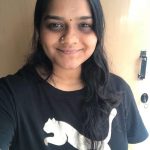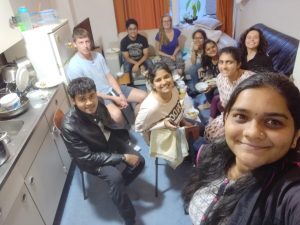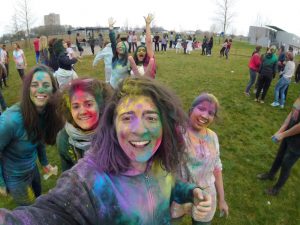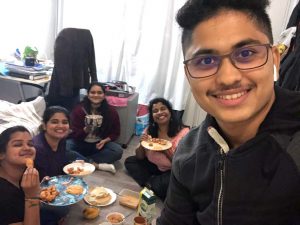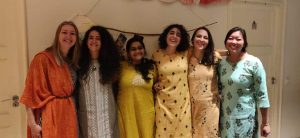Indian festivals & celebrations away from home
Festivals are an integral part of Indian culture and luckily we celebrate them throughout the year. Every festival has a unique significance. Most Indians celebrate festivals with families and a big menu.
To name a few:
- Makara Sankaranti marks the first day of the sun’s transit into the Makara (Capricorn) and the end of winter and start of long days. It is dedicated to the sun god a.k.a Surya.
- Holi a.k.a the festival of colours signifies the he start of spring, the victory of good over evil and celebrations of love & happiness. Celebrations are spread throughout the country, people play with colours as they groove to music.
- Eid ul- Fitr, the holy festival of Ramadan, usually in June, consists of a month long fasting and is celebrated at the end with joyful feasting. The significance is that prayers and fasting, brings the man/woman closer to Allah.
- Dusshera/Navratri/Durga Puja celebrates the victory of goddess Durga over evil Mahishasura. It is observed for over 10 days and is a grand social event with Garba performances.
- Diwali/Deepavali a.k.a as the festival of lights signifies the return of Lord Rama to Ayodhya after his 14 year exile. Celebrations are in the form of lighting diyas (lamps), drawing rangolis, wearing new clothes and burning crackers.
- Christmas celebrations are with families and friends going together to the church.
So, how do I make up for missing these celebrations in Wageningen?
Friends and I cook an elaborate meal and talk about celebrations of the festivals. I am glad I have friends that are always open to listening to stories of Indian festivals. In addition, associations like the Indian Student Association, International Student Organisation Wageningen and S&I supports students from different countries to help showcase their cultures.
Here are a few pictures of us celebrating in Wageningen

